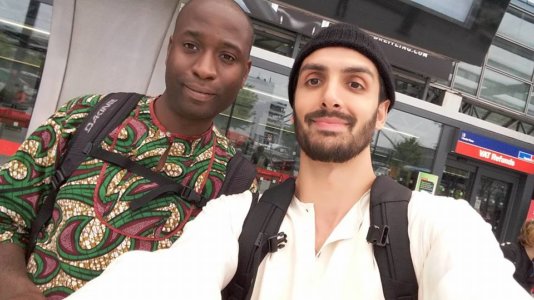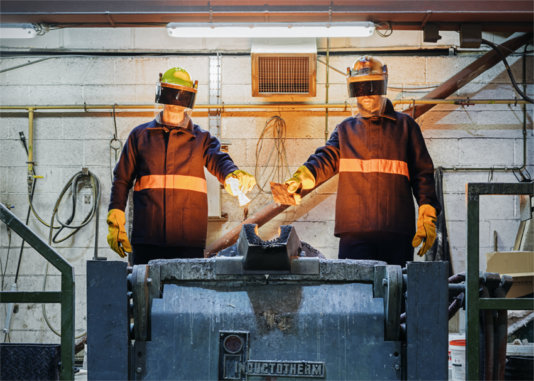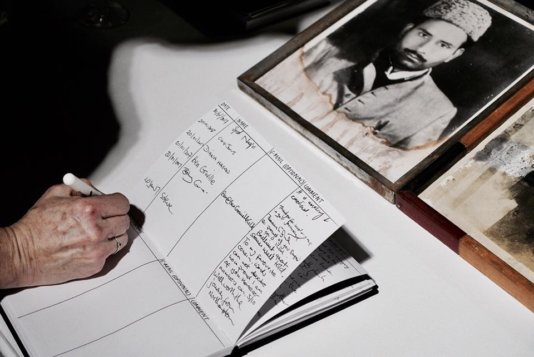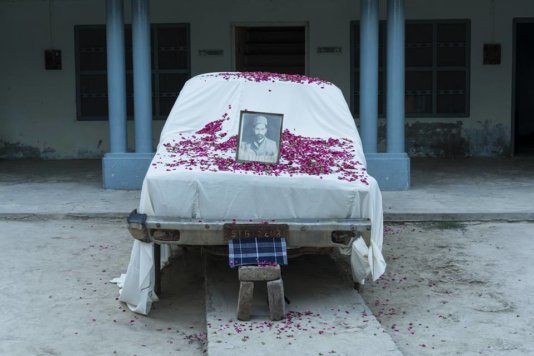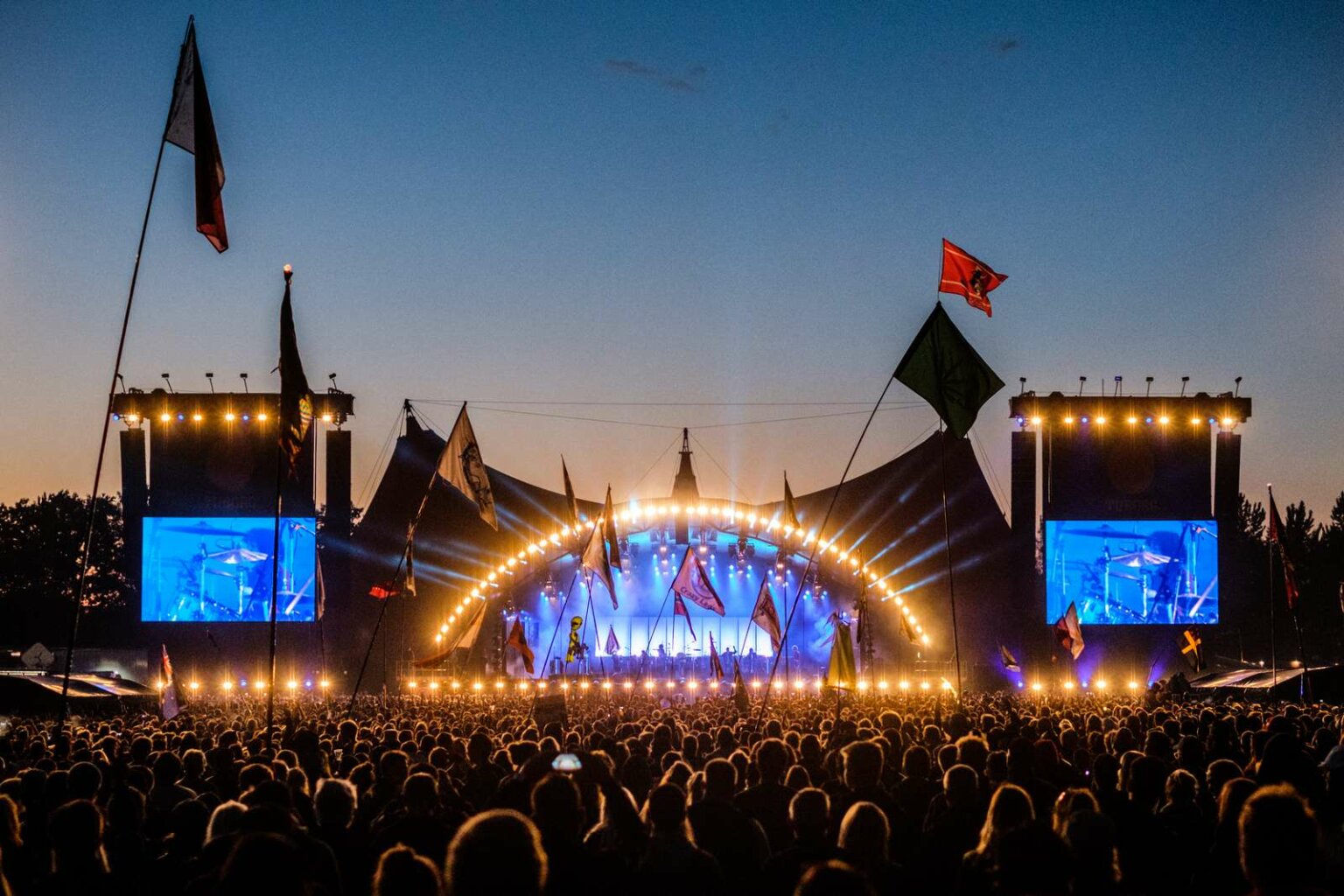- About
- Topics
- Picks
- Audio
- Story
- In-Depth
- Opinion
- News
- Donate
-
Signup for our newsletterOur Editors' Best Picks.Send
Read, Debate: Engage.
| February 27, 2017 | |
|---|---|
| topic: | Arts |
| tags: | #Karl Ohiri, #My Granddad’s car project, #Pakistan, #UK |
| located: | United Kingdom |
| by: | Federica Tedeschi |
The exhibition, which took place last month at the Stephen Lawrence Gallery in Greenwich (London), followed an overwhelmingly positive response to the previous display at the New Art Exchange in Nottingham. It shows the space human beings move through, by using landscapes, cloth and metal, introduced to the public in the form of photography, as well as film and sculpture.
Mr. Ohiri and Mr. Hasan have explored the deep meanings of migration and heritage through the relationships with the two cars inherited from their respective late grandfathers in Nigeria and in Pakistan. Their aim was to reconcile their relatives’ pasts in remote towns of Africa and Asia with their present contemporary lives in multicultural Britain.
“The car symbolises the idea of passage of time, the idea that on a long enough timeline things will disintegrate and fall apart if you don’t look after them”, said off Karl Ohiri.
“I think the car is a kind of vessel and metaphor for journeys. I have memories of travelling in the car as a young child during my holidays in Pakistan. Every time I went there, that car would be transporting me and my family to different places”, highlighted Sayed Hasan.
My Granddad’s car project is a completed journey entirely due to the determination of its creators. In fact, the two artists initially failed to separately ship the vehicles home to the UK in 2011, facing long, complicated bureaucracy and corruption. Then a shift in circumstances gave them the chance to turn things around while embracing a different approach.
“The whole project has been based on circumstances. The first stage left us with a kind of sense of failure but then realised that all those obstacles had actually paved the way for a more interesting story in many respects”, said Mr. Ohiri.
“The original idea of bringing back the cars together was about the belief of these two different histories in two different places coming together thorough our friendship, which is a product of the multicultural country where we met and were raised. It is also about integration, seen as the coexistence of different cultures which have however managed to keep their own traditions alive”, added Sayed Hasan.
Last Summer Mr. Ohiri and Mr. Hasan completed their journey, funded by Arts Council England, by travelling together to their respective grandfathers’ countries of origin and during those four weeks they spent most of the time with family members and experienced each other’s customs.
It was within that short period of time that the project took off, as Karl Ohiri explained:
“I wanted to change people's perceptions of the material and considering all the previous hurdles, the best available option was to flatten the bulk of the car and to start cutting it into more manageable pieces to be welded together to make an artwork, like a frame”.
Sayed Hasan's grandfather’s car in Pakistan no longer had interiors or even an engine by that point:
“I eventually decided to let go of the car and just take a piece of the fabric from inside which became kind of personal metaphor for history, reminding me that we can only take so much with us”, he said.
However, the most interesting outcome of the project is the metal ring which contains both cars inside and which symbolises how cultures, as well as objects, can be melted, as Mr. Hasan pointed out:
“Both of us managed to bring a piece of the respective car to the UK and melted them in Sheffield. We had have this initial idea of shipping the vehicles separately and ended up fusing them together, which went beyond any initial expectations”.
My Granddad’s car also draws attention to the relativity of right and wrong:
“In the UK we have a set of rules and car standards that ensures safety on the road, but in Pakistan and elsewhere in the world cars can be driven until they are completely broken and no longer have seatbelts or speed dials. That made me reflect on the idea of right and wrong, because our ancestors’ cars could have not existed in the UK, they would have been taken off the road longer before they stopped working. This is a clear example of multiple cultural influences: when you experience life in different places you understand that every judgement about right and wrong is kind of relative”, explained Sayed Hasan.
The young artists also sent a positive message to the public, specifying they do not agree with the media raising alarm over social integration in Britain: “The UK is very much a product of globalisation and migration and we believe there is more integration going on than we are credited for”.
This idea may apply to the wider world, too:
“We travelled to two different continents together and were welcomed in each other’s countries. No matter where you are from, there are always many commonalities among people from different sides of the world and these cultures can still be melted despite all the existing differences”, explained Karl Ohiri and Sayed Hasan.
By copying the embed code below, you agree to adhere to our republishing guidelines.
